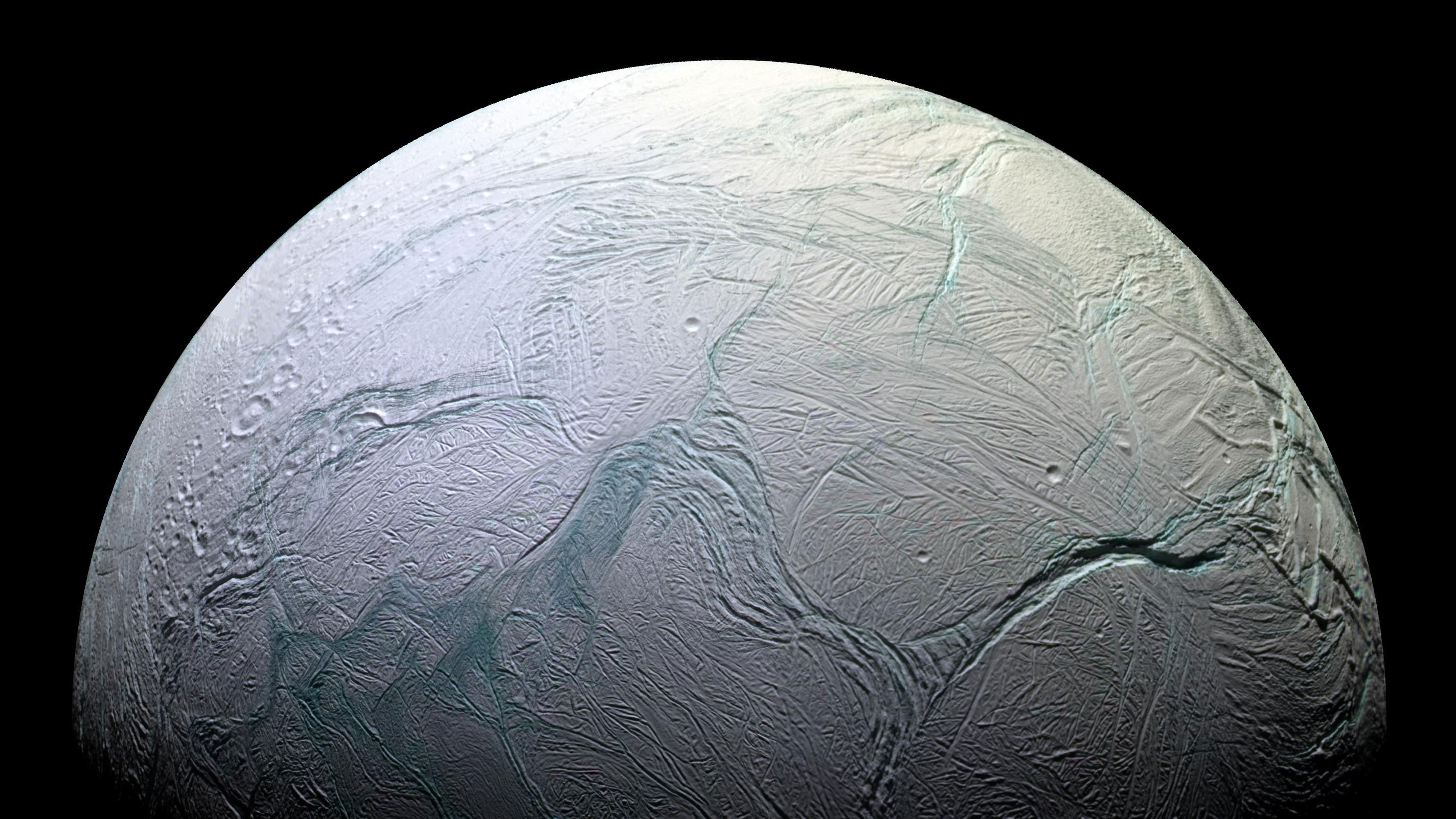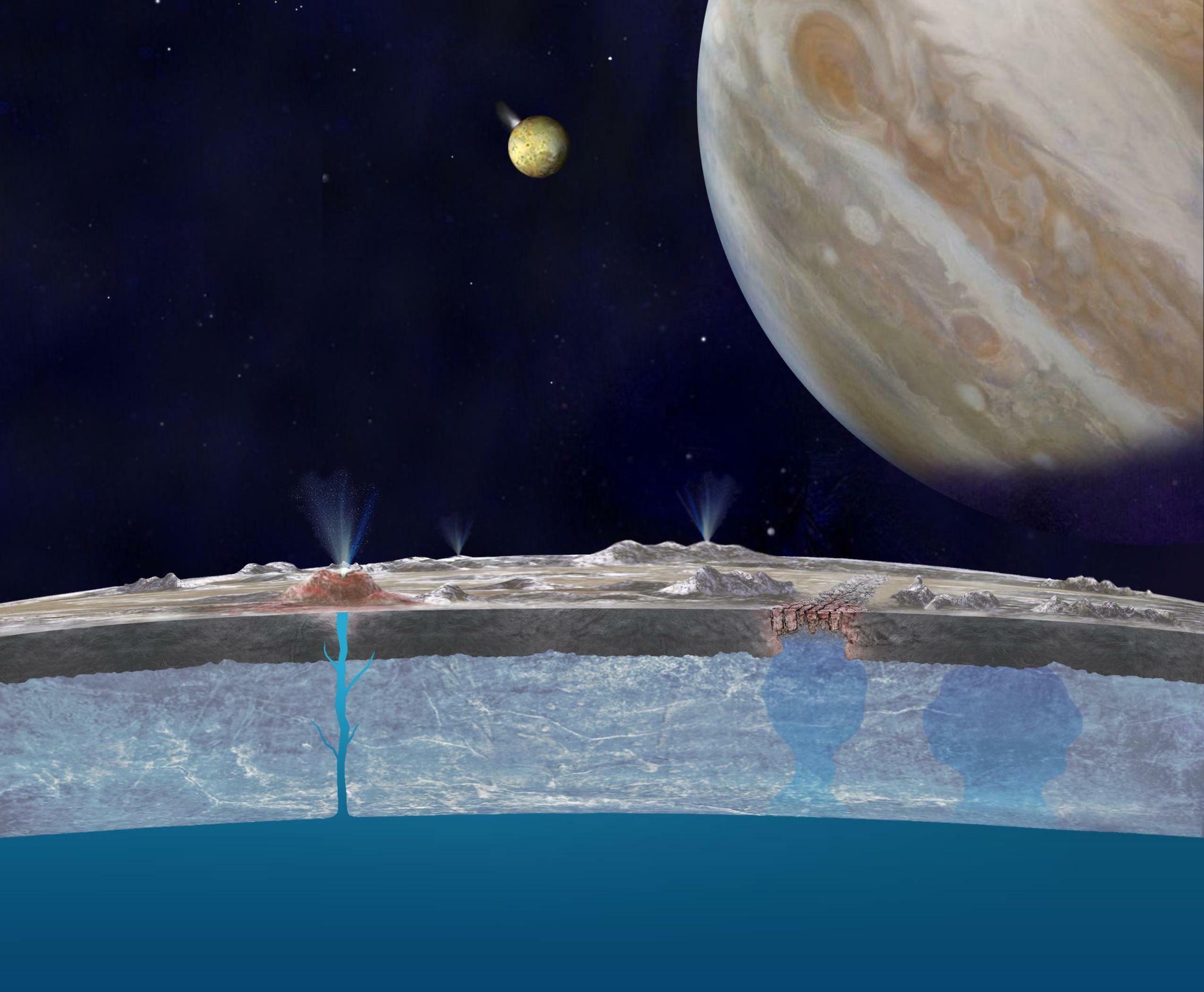The Discovery of Microbial Life: A Paradigm Shift in Understanding the Universe
Imagine a future where we discover microbial life beneath the icy shells of Enceladus or Europa—Jupiter’s moon believed to harbor vast subsurface oceans. Such a finding would not only alter the way we view our own solar system but could be one of the most significant scientific discoveries in history, radically shifting our understanding of life’s potential across the universe.
If life has emerged from a second, independent event of abiogenesis within this single star system—whether in Earth, Europa, or Enceladus—this would suggest that life itself may not be as rare or unique to Earth as once thought. This revelation could lead to the profound conclusion that life is likely a natural consequence of the universe’s physics and chemistry, implying the potential for a “microbial universe” teeming with simple organisms beyond our wildest imagination.
Enceladus and Europa: Concealed Oceans, Potential Life
Enceladus and Europa have long intrigued scientists with their icy exteriors and hidden oceans, offering tantalizing hints at what may lie beneath their surface. Both moons have shown evidence, via plumes of water vapor, of vast subsurface oceans possibly rich in the basic ingredients necessary for life—water, organic molecules, and energy sources.
The possibility of microbial life in these celestial bodies raises critical questions such as:
- Is the existence of life an inevitable outcome of organic chemistry?
- Could abiogenesis, the process through which life arises from inorganic substances, occur independently under similar conditions?
If the answer to either of these questions leans toward the affirmative, we could be living in a universe where life is ubiquitous—sprouting in pockets of oceans, atmospheres, or hydrothermal vents scattered across numerous planets and moons.
An Abiogenesis Event Beyond Earth: What Would it Mean?
Our understanding of life’s origin is currently based on a single data point: Earth. But if we were to discover life beneath the depths of Europa or Enceladus, then we would have found two instances of life emerging in one solar system. This would dramatically increase the probability that life exists elsewhere in the cosmos. To find microbial organisms emerging from similar chemical processes would prompt scientists to ask fundamental questions about life’s very nature.
Would such a discovery mean that life is an inevitable result of planetary evolution? Could it be that biochemistry is simply one of the outcomes of universal chemistry? These are profound questions that extend well beyond the realm of astrobiology and into the fields of philosophy, ethics, and even theology.
Searching for Intelligent Life: A Renewed Imperative
Increasing the likelihood that there are countless instances of microbial life throughout the universe naturally leads to the next pivotal question: how extensive is the spectrum of life? The leap from microbial life to intelligent life is immense—yet, if abiogenesis occurred more than once in our solar system, there’s an increased likelihood that somewhere else, life forms could evolve to develop intelligence.
This strengthens the case for continuing and amplifying efforts to search for extraterrestrial intelligence (SETI), whether through radio signals or other detections of advanced civilizations. If life is abundant at the microbial level, it stands to reason that the odds of discovering intelligent signals increase proportionately.
As discussed in my previous article on the BLC1 Signal, detecting intelligent life wouldn’t be as simple as finding microbial organisms. Instead, we should expect a much more refined strategy, employing AI models capable of identifying extremely faint or unusual signals across vast cosmic distances. However, understanding the widespread nature of microbial life would offer both encouragement and a renewed sense of purpose in these searches.
The Chemistry of Life: Inevitability or Unique Event?
One of the most intriguing aspects of this hypothesis is the role of organic chemistry. On Earth, life emerged within specific environmental and chemical conditions. By exploring other worlds that may have similar conditions, we begin to test the hypothesis that the emergence of life might be a natural, inevitable sequence of reactions—something ingrained in the fabric of the cosmos, orchestrated by basic chemical and physical laws.
From a scientific standpoint, we must consider whether life’s development is a rare and serendipitous event. If life can be proven to exist independently elsewhere in the universe, we may finally declare that life, in its microbial form, is indeed an eventuality of organic chemistry. This understanding will not only reshape space exploration priorities but could also create breakthroughs in molecular biology, geology, and planetary sciences.
As someone who has always adhered to science-driven principles and sought evidence-based solutions, this scenario perfectly marries my interest in AI, probability theory, and astrophotography (such as my work on Stony Studio). Like the methodology in artificial intelligence, discovering life elsewhere would require a process of rigorous iteration and hypothesis testing fueled by data and grounded in reality.
The Case for Continued Exploration
The stakes in exploring moons like Europa and Enceladus have never been higher. Discovering microbial life would not just be a groundbreaking event—it would be a paradigm shift in understanding biology, chemistry, and our place in the universe. Projects like NASA’s Europa Clipper Mission are exactly the types of focused initiatives needed to answer these monumental questions, and they could be the first step toward unraveling this cosmic mystery.
Once we understand that life is likely abundant—even in the most extreme environments—the urgency to search for more complex and intelligent forms of life will grow. The universe could indeed be teeming with living organisms—if only we know where (and how) to look.
< >
>
Conclusion: The Great Cosmic Shift
The discovery of microbial life on another planet or moon would be transformative. It would signal that life, at some fundamental level, is a probable consequence of the universe’s chemistry. In turn, this would push us further in our quest to explore the cosmos, to seek out not only simple life forms but potentially intelligent civilizations.
Is abiogenesis a universal outcome, a cosmic inevitability? Only continued search and discovery will tell. Until then, every new mission, from sending probes to analyzing plumes from icy moons, is a step closer to answering one of humanity’s oldest and greatest questions: Are we alone?
< >
>
<
>
Focus Keyphrase: Discovery of microbial life